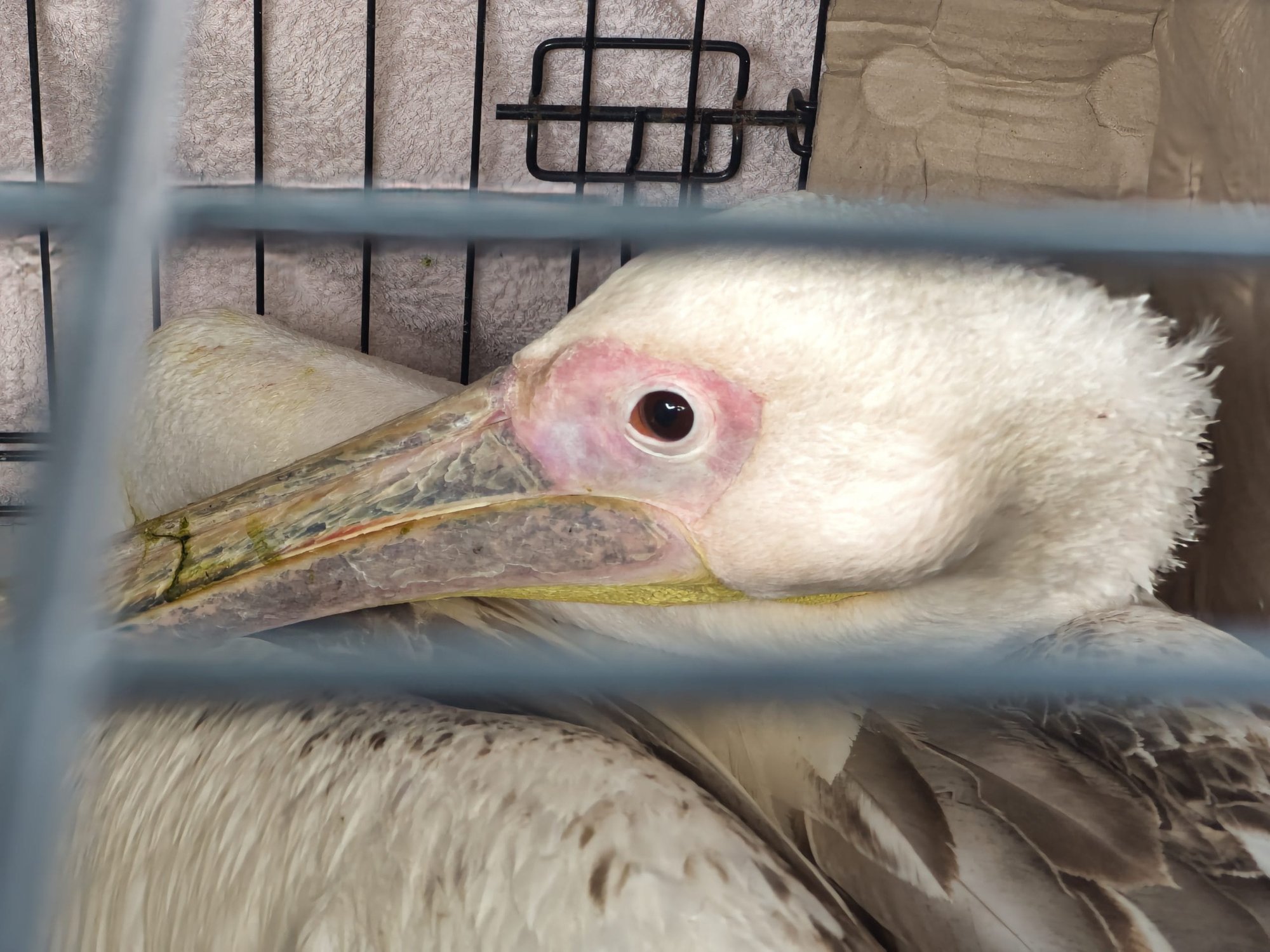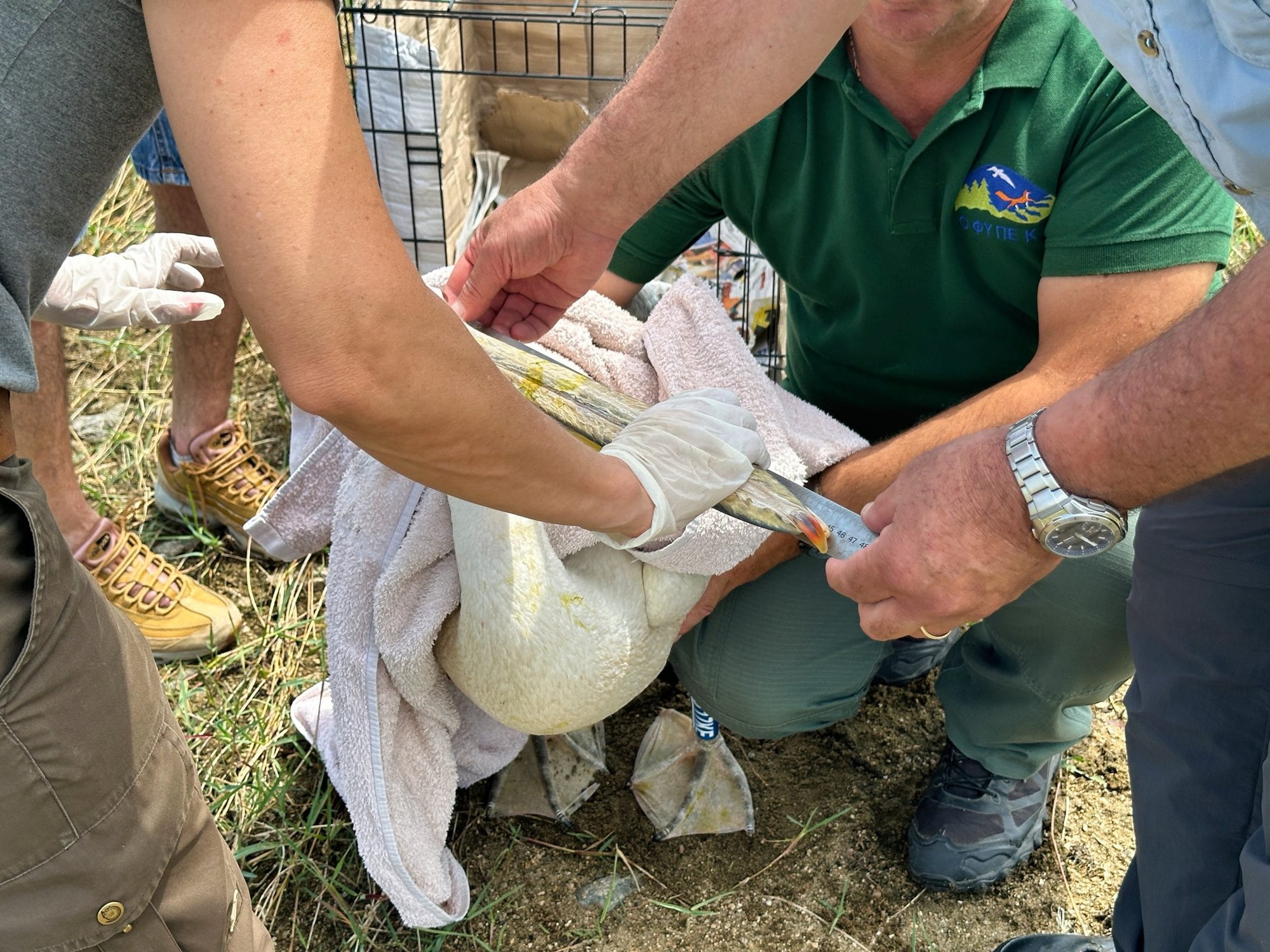When Frosso, the biologist from Action for Wildlife message me to ask when I was heading to Kerkini Lake, I didn’t hesitate.
A Great White Pelican needed to be released back into the lake after spending about two months in care. The pelican had been found injured in one of its wings, possibly electrocuted, near the city of Drama.
The staff at Action for Wildlife provided the necessary treatment, and it was time for the pelican to return to the wild. Lake Kerkini is an ideal release site for injured pelicans. It’s a safe environment with an abundant food supply, thanks to the thriving fish population, and it hosts a significant population of Dalmatian and Great White Pelicans, which is crucial for their survival.
Volunteering in any capacity to help organizations like Action for Wildlife is a fulfilling way to give back to our beautiful planet. Whether it’s assisting with animal care, participating in habitat restoration projects, or supporting administrative tasks, every contribution makes a difference. Engaging in volunteer work allows you to play an active role in conservation efforts, fostering a deeper connection to nature and the environment. It’s a rewarding experience that not only aids in the protection of wildlife but also enriches your own understanding and appreciation of the natural world. Find ways to support Action for Wildlife here.
But let’s get back to our story!



Transporting an animal, especially one as large as a pelican, over a 1.5-hour journey is always challenging. You must drive slowly and carefully to avoid disturbing the passenger, maintain a stable temperature inside the vehicle, and occasionally lower a window to refresh the air.
The pelican remained calm and still, perhaps taking the opportunity to rest.
The team from the N.E.C.C.A. branch at Kerkini Lake tagged the pelican’s legs and released it. Due to the injury on the wing, they decided against tagging the wings or attaching a transmitter. After the release, the pelican seemed relaxed, stretching its wings before swimming away.
I plan to keep an eye out for him in the coming months to see how he’s doing.
Farewell, my friend. Best of luck, and I hope to see you again at the lake this winter—unless you choose to migrate to Africa this fall!







